22+ SAMPLE Construction Consultant Agreement
-
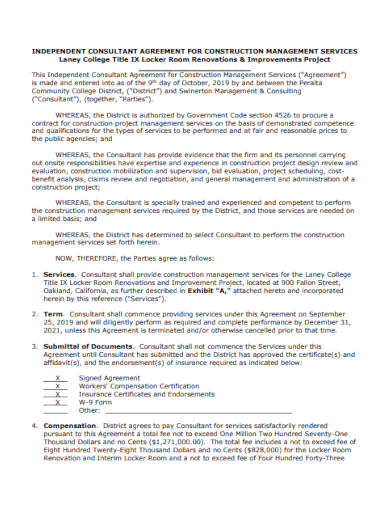
Construction Management Consultant Agreement
download now -
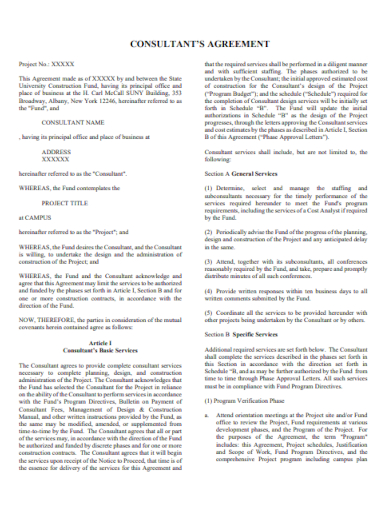
Construction Fund Consultant Agreement
download now -
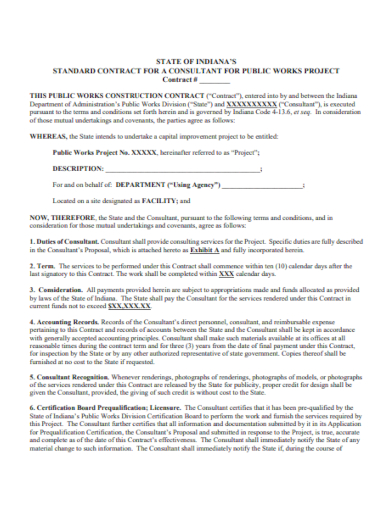
Construction Project Consultant Agreement
download now -
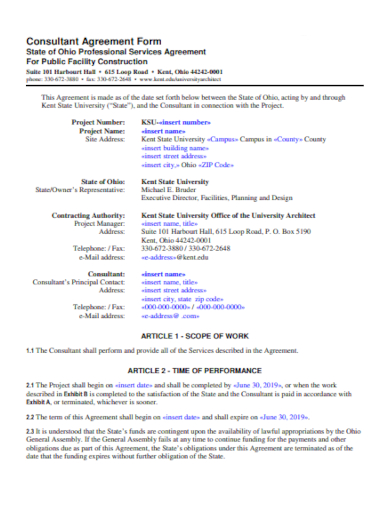
Construction Consultant Agreement Form
download now -
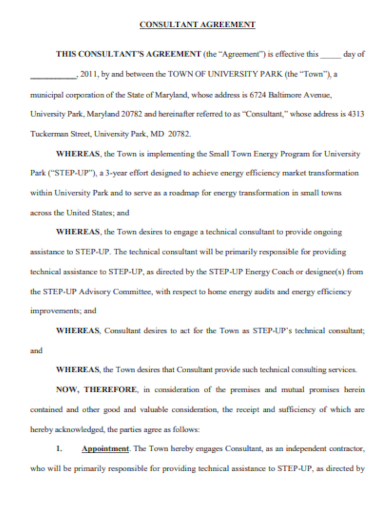
Standard Construction Consultant Agreement
download now -
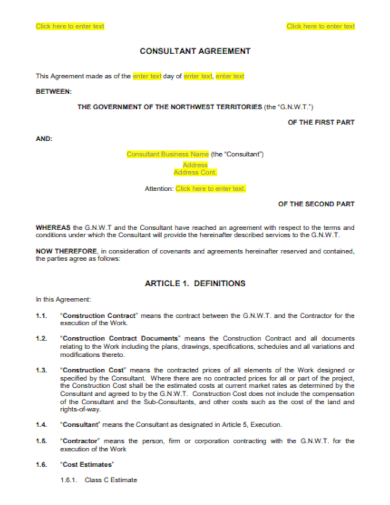
Construction Consultant Contract Agreement
download now -
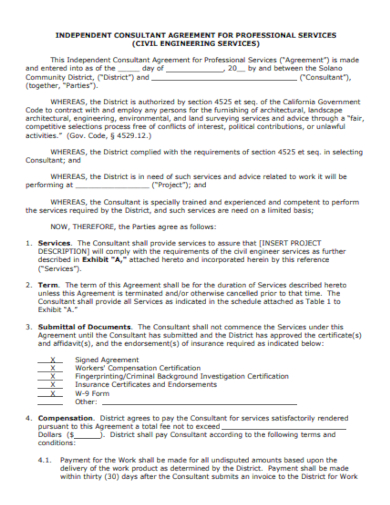
Construction Consultant Services Agreement
download now -
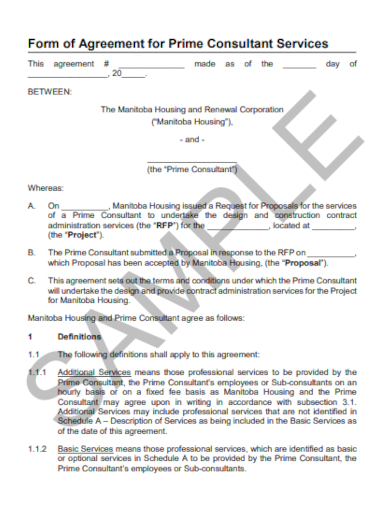
General Construction Consultant Agreement
download now -

Consultant Agreement for Construction Project
download now -
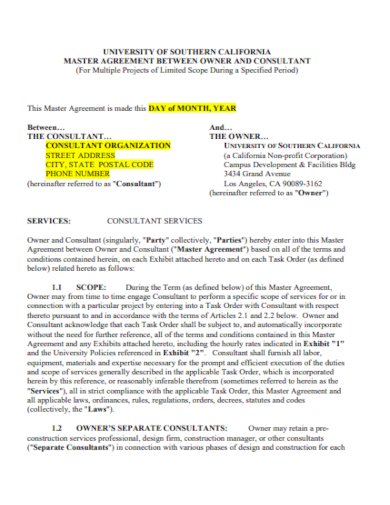
Sample Construction Consultant Agreement
download now -
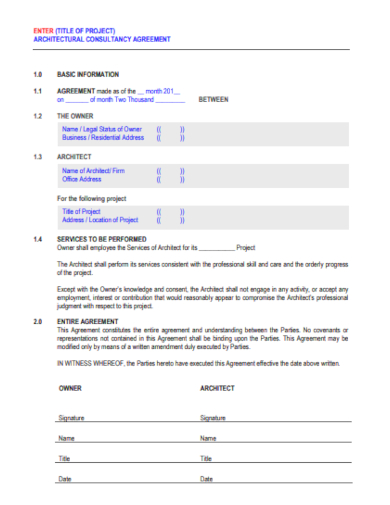
Architecture Consultancy Agreement
download now -
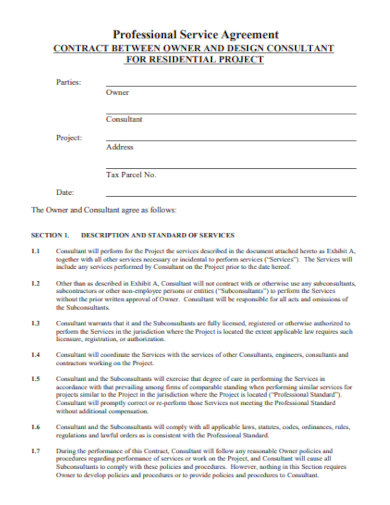
Construction Design Consultant Agreement
download now -
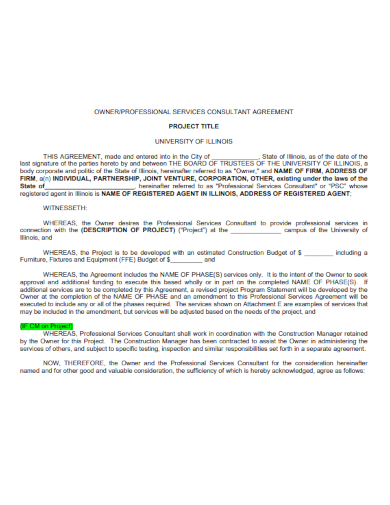
Construction Consultant Agreement Format
download now -
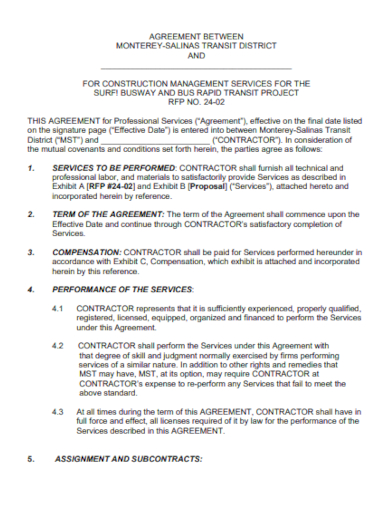
Construction Contractor Consultant Agreement
download now -

Construction Manager Agreement
download now -
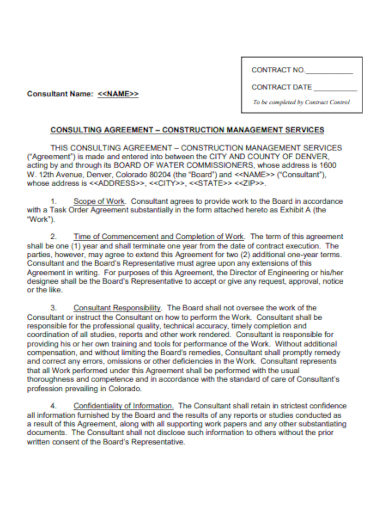
Construction Consulting Agreement
download now -
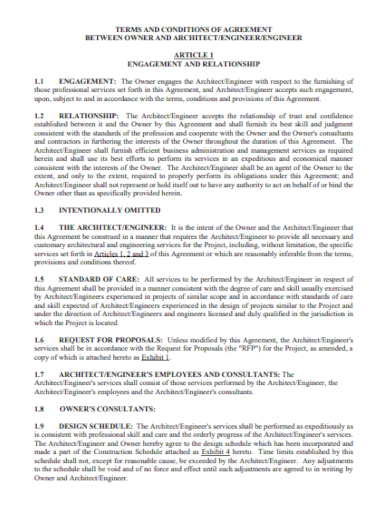
Construction Engineer Consultant Agreement
download now -
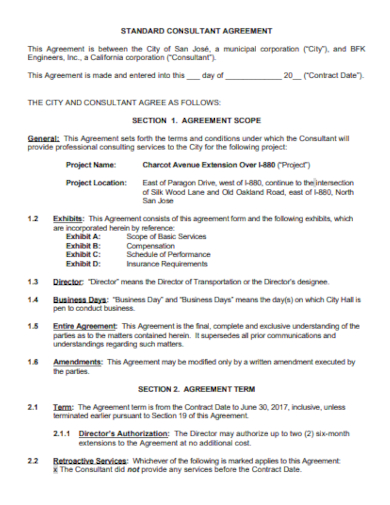
Construction Consultant Agreement Template
download now -
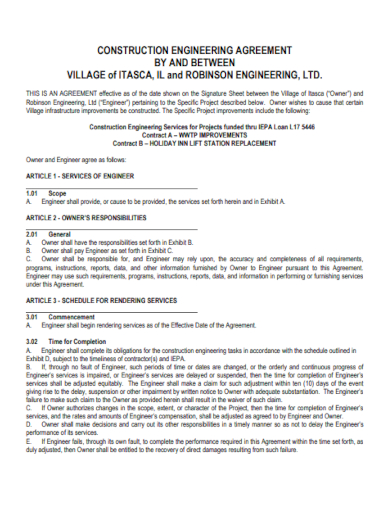
Construction Engineering Consultant Agreement
download now -
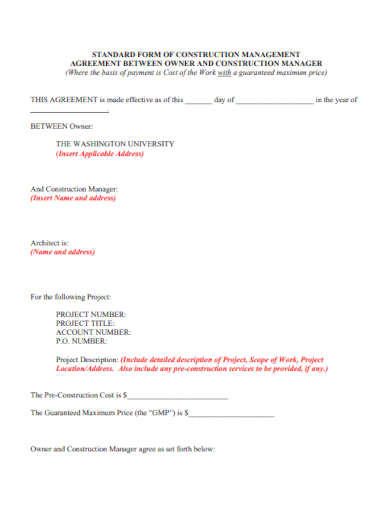
Standard Construction Manager Agreement
download now -
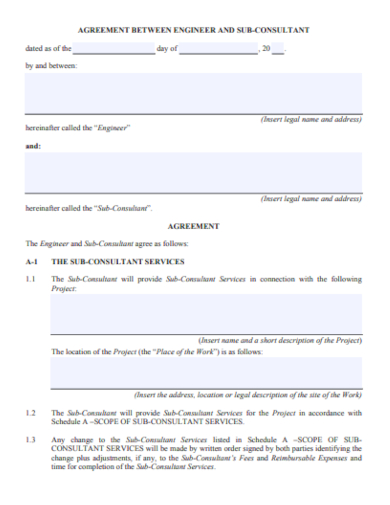
Construction Engineer Sub-Consultant Agreement
download now -
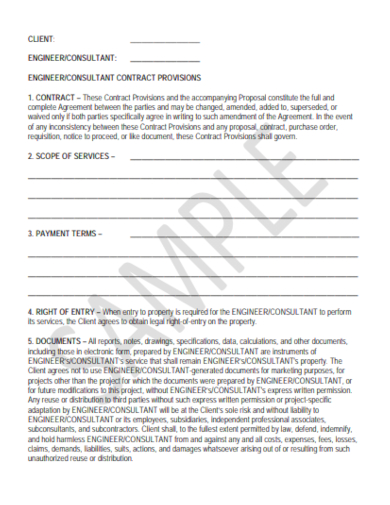
Construction Client Consultant Agreement
download now
FREE Construction Consultant Agreement s to Download
22+ SAMPLE Construction Consultant Agreement
Definition
Understanding the Importance of the Agreement
Key Components of a Construction Consultant Agreement:
Benefits of Using a Construction Consultant Agreement
Tips for Drafting an Effective Agreement
Enhance Your Construction Consultant Agreement
What should be included in a standard construction consultant project agreement?
How can one ensure that the construction consultant agreement is comprehensive?
What happens if terms in the construction consultant agreement are breached?
Can a construction consultant agreement be terminated prematurely?
Do construction consultant agreements need periodic reviews?
How does a construction consultant agreement differ from a general contractor’s contract?
Definition
A construction consultant agreement is a formal contract between a construction consultant and a client, detailing the services the consultant will provide, terms of compensation, and other relevant clauses. Entering into a well-drafted agreement ensures both parties are clear about their roles and responsibilities. They may be engaged in various capacities such as providing feasibility studies, design advice, cost estimations, project management services, and more.
Understanding the Importance of the Agreement
A well-drafted consultant agreement serves as a cornerstone for a smooth and efficient construction project. It minimizes the risk of misunderstandings and disputes, establishes clear lines of communication, and sets expectations for both parties.
Key Components of a Construction Consultant Agreement:
- Purpose and Scope of Services: This is a clear description of what services the consultant is expected to provide. It can range from project management, architectural designs, or quality assurance checks.
- Duration and Timeline: Specify when the services will begin and when they will conclude. Outline major project phases or tasks and their estimated completion dates.
- Compensation and Payment Terms: Whether it’s a fixed fee, hourly rate, or based on project milestones. Detail any extra costs that might be passed on to the client, like travel expenses or materials. Specify when payments are due, such as monthly or upon reaching certain milestones.
- Confidentiality and Non-disclosure: Both parties may need to exchange confidential data. The agreement should specify the kind of information that’s considered confidential and the obligations of both parties to protect it.
- Termination of the Agreement: Both parties should be aware of what actions or omissions can result in the contract being terminated. The time frame required to inform the other party about the intention to terminate.
- Dispute Resolution: Whether disputes will be resolved through mediation, arbitration, or court litigation. Specify the location or governing body that will oversee any disputes.
- Liability and Indemnification: Limits on the consultant’s liability, which can be based on the fee, a specific amount, or the type of damage. This outlines scenarios where one party agrees to compensate the other for any harm, losses, or damages they might suffer.
- Miscellaneous Provisions: Events beyond the control of the parties, like natural disasters or strikes, which might delay the project. A clause stating that the written agreement contains all the terms and conditions agreed upon.
Benefits of Using a Construction Consultant Agreement
A construction consultant agreement serves as a roadmap to the professional relationship between the consultant and the client. This document, when well-drafted, offers numerous benefits, ensuring that the construction project progresses smoothly while minimizing potential pitfalls. Here’s a closer look at the advantages:
1. Clarity in Roles and Responsibilities:
The agreement provides a clear outline of what is expected from the consultant and what the client’s responsibilities are. This minimizes ambiguity and sets a foundation for accountability.
2. Financial Transparency:
By detailing compensation, payment schedules, and reimbursement methods, both parties have a clear understanding of the financial aspects, eliminating surprise costs and disagreements over payments.
3. Risk Management:
Provisions related to confidentiality, liability, and indemnification protect both parties from potential legal issues or breaches of trust.
4. Establishes Performance Benchmarks:
With key milestones and timelines clearly outlined, the client can track the consultant’s progress and ensure the project stays on schedule.
5. Effective Dispute Resolution:
By predetermining methods for handling disagreements, like mediation or arbitration, both parties can save time and money if issues arise.
6. Protection Against Unforeseen Circumstances:
Clauses related to force majeure account for unexpected events that are beyond the control of both parties, ensuring neither is unfairly penalized for delays or disruptions caused by such events.
7. Facilitates Communication:
A comprehensive agreement encourages open communication, setting the tone for a collaborative approach to problem-solving and project advancement.
8. Professionalism and Credibility:
Using a detailed agreement showcases a commitment to professionalism. It implies that the consultant is seasoned and that the client is serious about the project’s success.
9. Intellectual Property Protection:
If the consultant develops unique solutions or designs, the agreement can specify who owns these creations, ensuring that intellectual property rights are upheld.
10. Clear Termination Provisions:
Both parties understand under what circumstances the agreement can be terminated, the notice periods required, and any penalties or costs associated with early termination.
11. Legal Enforceability:
A signed agreement is legally binding. In the event of a breach by either party, the wronged party has legal grounds to seek remedies.
12. Flexibility:
Consultant agreements can be tailored to suit the specific needs of the project, ensuring that both the consultant and the client’s unique requirements are addressed.
Tips for Drafting an Effective Agreement
Drafting an agreement, whether for construction consultation or any other purpose, requires a blend of clarity, foresight, and attention to detail. Here are some essential tips to consider when crafting an effective contract:
1. Understand the Objectives:
Begin with a clear understanding of what both parties hope to achieve. This ensures that the contract reflects the mutual goals and expectations.
2. Use Clear and Simple Language:
Avoid jargon and legalize unless necessary. The agreement should be easily understandable to all parties involved, even without legal training.
3. Be Specific:
Ambiguity can lead to disputes. Clearly define terms, roles, responsibilities, compensation, and any other critical aspects of the agreement.
4. Include All Essential Elements:
Ensure the agreement covers all the fundamental aspects like parties involved, consideration (what is being exchanged, often payment for services), terms and conditions, and the period of the agreement.
5. Address Potential Risks:
Consider potential challenges or disputes that might arise and address them in the contract. This might include clauses on dispute resolution, termination, or force major events.
6. Clarify Intellectual Property Rights:
If the engagement involves the creation of any intellectual property, define who owns it, usage rights, and any limitations.
7. Ensure Compliance with Local Laws:
Contracts should comply with local laws and regulations. This is particularly crucial for areas like data protection, labor rights, and safety standards.
8. Detail Payment Terms:
Clearly state the compensation amount, payment timelines, invoicing procedures, and what happens in case of late payments.
9. Review Termination Clauses:
Define both the regular end of the contract and the conditions under which a party can terminate prematurely. Include any notice requirements and potential penalties or refunds.
10. Have a Confidentiality or Non-disclosure Section:
If sensitive information will be shared, outline what is considered confidential and the expectations for protecting that information.
Enhance Your Construction Consultant Agreement
While a basic construction consultant agreement can cover the essentials, enhancing it can better protect all parties involved, provide clearer guidance, and promote a more productive working relationship. Here’s how you can take your agreement to the next level:
1. Use a Structured Format:
Organize the agreement with a clear table of contents, section numbers, and headers. This makes referencing specific clauses quicker and simpler.
2. Incorporate Defined Terms:
Start with a definitions section where you clarify the meanings of specific terms used throughout the agreement. This minimizes ambiguity.
3. Add Detailed Scope Illustrations:
Beyond just a list of tasks, consider incorporating diagrams, flowcharts, or even Gantt charts to visually represent the project’s scope or timeline.
4. Introduce Performance Metrics:
Clearly specify benchmarks, quality standards, or performance indicators that the consultant needs to achieve.
5. Embed Communication Protocols:
Specify preferred modes of communication, response times, and any required regular meetings or reporting intervals.
6. Introduce a Review and Feedback Mechanism:
Schedule periodic reviews or checkpoints where both parties can discuss the project’s progress and make any necessary adjustments.
7. Detail Training and Onboarding:
If the consultant requires any specific training, software access, or onboarding processes, outline them in the agreement.
8. Specify Warranty Provisions:
Clearly define any guarantees or warranties related to the consultant’s services, including their duration and scope.
9. Incorporate Technology Clauses:
With the rise of digital tools, specify any software or platforms that will be used, data protection measures, and intellectual property considerations related to digital assets.
10. Outline a Process for Modifications:
Projects evolve, and changes might be needed. Detail a mechanism for proposing, reviewing, and agreeing on modifications to the agreement or project scope.
What should be included in a standard construction consultant project agreement?
A typical agreement would encompass scope of work, payment terms, duration of the consultancy, confidentiality clauses, liabilities, and terms for termination. It’s crucial to tailor the agreement to the specific needs and nuances of the construction project at hand.
How can one ensure that the construction consultant agreement is comprehensive?
It’s advised to work with legal professionals experienced in construction consultancy to ensure all necessary clauses and provisions are included.
What happens if terms in the construction consultant agreement are breached?
Breaching the agreement can lead to various outcomes, depending on stipulated clauses. Consequences might include mediation, penalties, termination of services, or legal action. It’s essential to have clear breach and resolution terms for smooth operations.
Can a construction consultant agreement be terminated prematurely?
Yes, terms for termination, whether due to breach or other reasons, are usually specified within the agreement to ensure a smooth exit process.
Do construction consultant agreements need periodic reviews?
Periodic reviews can be beneficial, especially for long-term projects, to ensure all parties align with evolving project needs and market changes.
How does a construction consultant agreement differ from a general contractor’s contract?
A Construction Consultant Agreement focuses on consultancy services, such as advice, project management, or feasibility studies. In contract, a general contractor’s contract usually revolves around the actual building and construction tasks.
In the intricate labyrinth of the construction industry, a Construction Consultant Agreement stands as a beacon, guiding both consultants and clients towards a clear, transparent, and mutually beneficial partnership. It’s not just a contract, but a testament to collaboration, detailing each party’s roles, expectations, and commitments. With the rising complexities of construction projects, having such an agreement is indispensable. Investing time in crafting a comprehensive agreement is investing in the future success and integrity of any construction endeavor.
